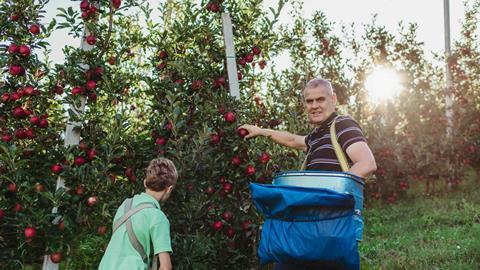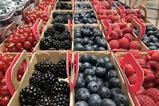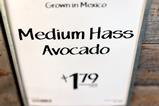Consortium’s new environmentally friendly line already has the backing of several growers in its home region of Val Venosta
Italian apple supplier Vip says the recent launch of a project to develop herbicide-free apple production in South Tyrol has met with great enthusiasm among its member growers.
The group’s Voluntary Herbicide-Free Initiative has already been widely adopted in its home region of Val Venosta, where several producers have switched to mechanical weed control methods that are more environmentally friendly.
And while such a move does mean more labour-intensive and more costly production, it also creates an opportunity to command more of a premium in the market, according to Vip’s sustainability manager Viktoria Alber.

“Currently, 28 per cent of the total apple-growing area in Val Venosta is managed without herbicides,” she explains. “This accounts for a total of 1,464 hectares and has enabled us to launch a 100% Herbicide-Free Apples line, packaged in eco-friendly cardboard trays, which has been particularly well received by consumers.”
Vip believes its commitment to teamwork, technological advancement, and biodiversity is now more vital than ever, as it works to secure a profitable and sustainable future for its grower members.
It describes economic sustainability as “a cornerstone” of its commitment to the group’s 1,500 or so member producers and their families.
And given that the average farm size is just three hectares, its role in supporting these small-scale producers, maximising the value of their harvests, and keeping the industry viable for future generations is crucial.
“This economic sustainability is achieved through a cooperative model that centralises key services – from marketing to logistics – while maintaining a strong focus on quality,” says Alber.
That quality commitment means its professional guidance is an even more valued commodity in the modern era. For example, it helps growers to select varieties that can withstand the pressures of climate change, but also remain in tune with market demand.
“Every step of the process is also fine-tuned for economic efficiency,” Alber continues. “Apples are picked in multiple rounds to ensure that only those at peak ripeness are harvested. They are then stored under optimal conditions, carefully selected, and delivered to customers via an unbroken cold chain.”
Any fruit that is damaged, for example by hail, is sent to nearby processing company Vog Products, where it can be turned into juice, concentrate, or purée.
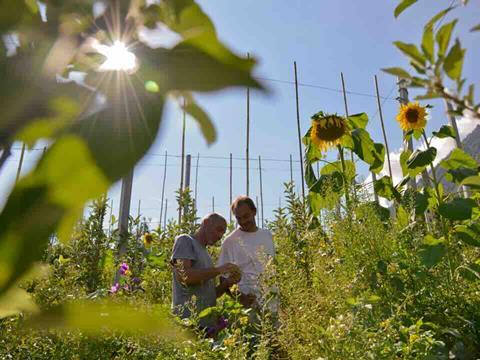
At one with nature
Biodiversity has become a fundamental priority for Vip in recent times, and by the time its next crop is harvested in the second half of 2025, all of its growers will document their various biodiversity measures using Ella, a new habitat monitoring system developed by the South Tyrol Advisory Centre for Fruit and Wine Growing.
“The market and major retailers demand demonstrable efforts in biodiversity conservation, and Vip supports numerous concrete actions in line with Bioland guidelines,” Alber notes.
These include the construction of dry-stone walls as refuges for wildlife, the installation of nesting boxes, and the planting of flower strips and hedgerows.
Over 70 per cent of Vip’s surveyed farms have planted hedgerows in their orchards, while more than half have introduced perennial shrubs, and 40 per cent have tall solitary trees.
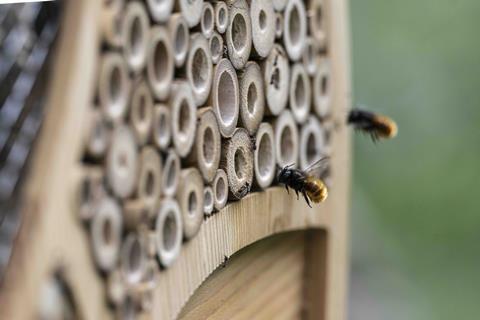
Vip also collaborates with local beekeepers to protect the insects, which remain so important for pollination.
To address a shortage of food for bees in the period between apple blossom and the relocation of beehives to higher altitudes, Vip has established dedicated pastures that ensure a steady supply of pollen and nectar.
Two such pastures are found in Monte Sole in Laces and Monte Sole in Corzes (Silandro), an area previously affected by caterpillars called black pine processionary moth larvae.
Together with Vog Products, Vip funded the pines’ removal and supplied 200 new trees and bee-friendly seeds to support the project.
